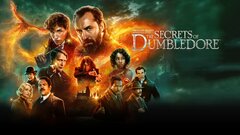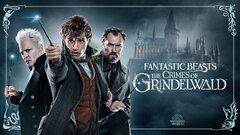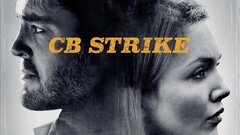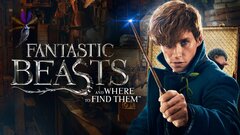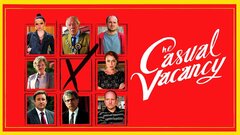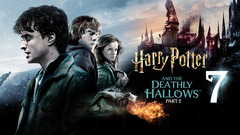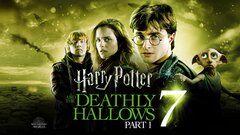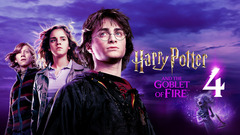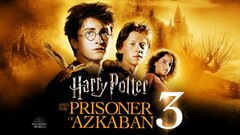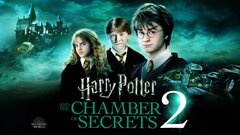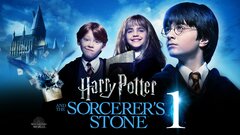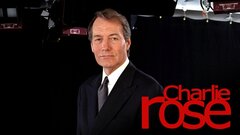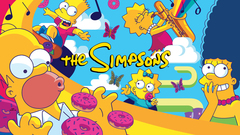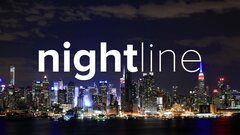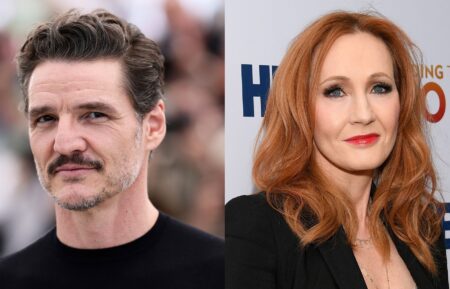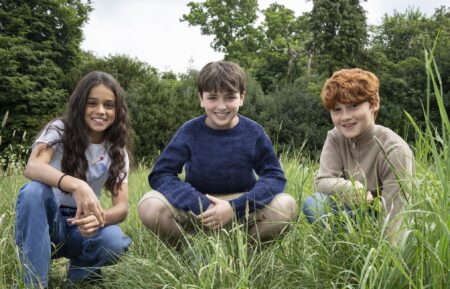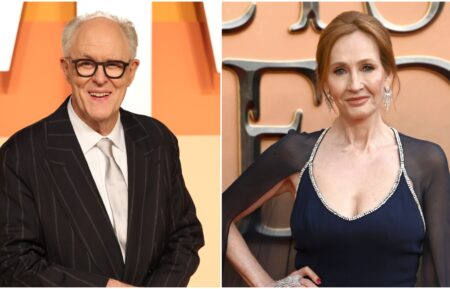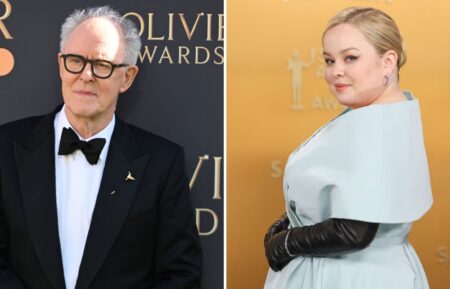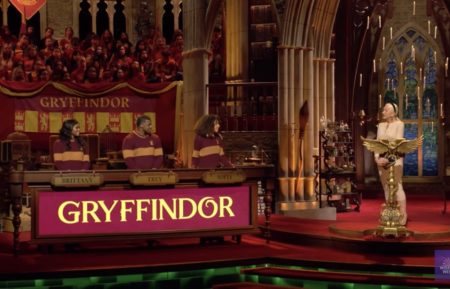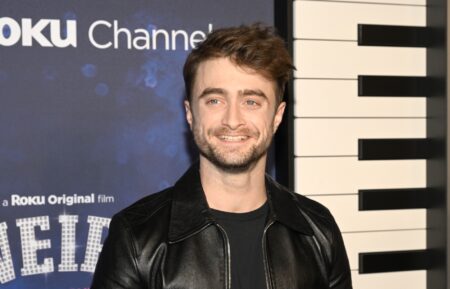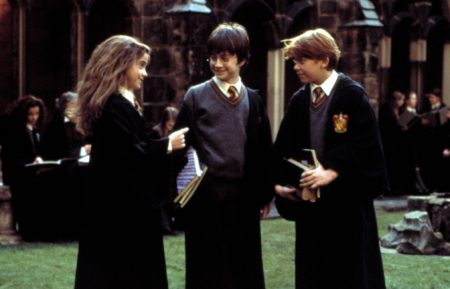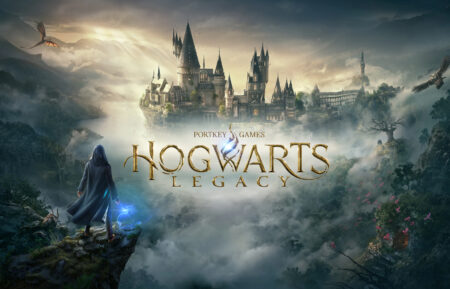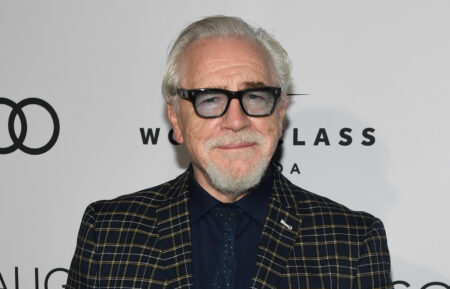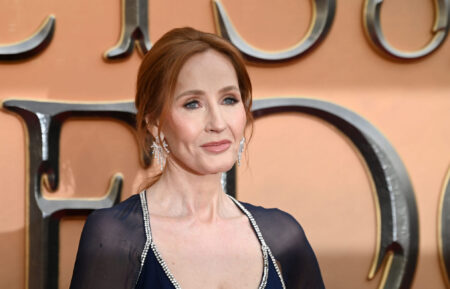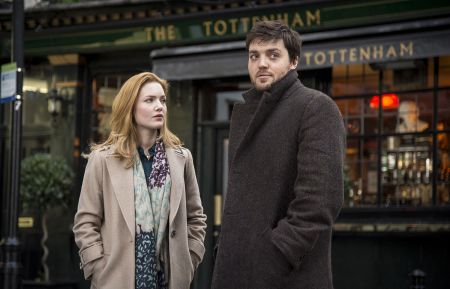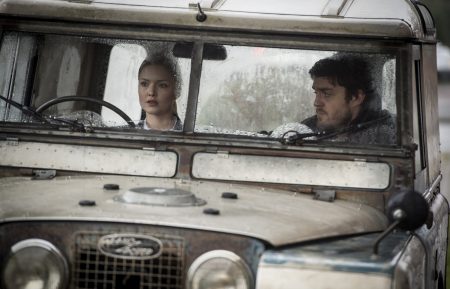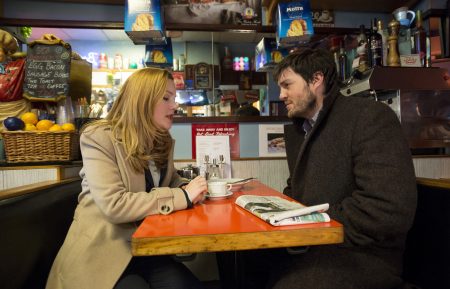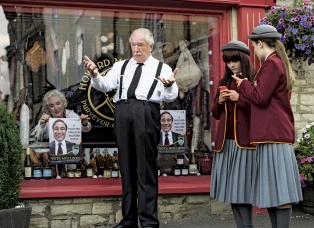Prior to becoming one of the best-selling authors of all time, J.K. Rowling struggled with all manner of life problems that would have sent most mere mortals spiraling into pits of despair, never to be heard from again. Rowling, on the other hand, channeled her misfortunes into self-determination, achieving her lifelong goal of being a successful writer, and along the way, creating one of the best known and beloved characters in contemporary literature.
Her creation of Harry Potter - an angst-ridden boy who explores his powers as a budding magician while coping with the tragic loss of his parents and the frustrations of growing into an adult - would capture the imaginations of both children and adults. Little did Rowling know that when Potter magically appeared to her while on route to London via train that he would become such an international star, both in books and on the big screen, and would turn the once down-and-out writer into a multi-millionaire.
Despite the immense popularity of her creation, Rowling tried - often futilely - to maintain her privacy. But Harry Potter took on a life of its own, thanks to the legions of fans who emptied bookshelves or crowded multiplexes whenever the next installment came to light, putting the reluctant author into the awkward position of being an international celebrity. Although Rowling went on to publish several other novels, including the wry small-town politics satire The Casual Vacancy, she not only happily acknowledged the boy wizard's role in her life, she returned to his magical world in various forms, including a stage play picking up the characters as adults and a related film, "Fantastic Beasts and Where to Find Them" (2016).
Joanne Kathleen Rowling was born on July 31, 1965 in Chipping Sodbury, South Gloucestershire, England into a solidly middle-class home. Her father, Peter, was an engineer at a Rolls Royce plant in Bristol, and her mother, Anne, was a lab technician at Wyedean School. Thanks to her parent's encouragement, Rowling developed an early love of books and knew at six years old that she wanted to be a writer.
An attentive student, she attended state-run school in Chapstow, followed by enrollment at Exeter University, where she intended to study English. But in deference to her parent's wishes, Rowling took up French instead, as Peter and Anne wanted very much for their daughter to be a translator or interpreter, perhaps at the United Nations. After graduating Exeter, she went to work for Amnesty International, then the Chamber of Commerce in Manchester; both jobs she found dreadfully boring. All the while, however, she was writing - mostly stories in college - but like many writers, nothing ever reached conclusion.
In 1990, Rowling's life took a turn for the worse. While on holiday with a former boyfriend, she received news that her mum had died after years of suffering from multiple sclerosis. From that moment on, life was never the same. Her dad revealed that he had been dating another woman while Rowling's mother was sick and dying; news that destroyed his relationship with his daughter. Distraught over her wrecked family life, Rowling fled to Portugal where she began teaching and while there, met struggling journalist Jorge Arantes, whom she married on Oct. 16, 1992. But that relationship, which spawned her first child, Jessica, was stormy and miserable and ended for good after a seven-hour fight that resulted in Arantes physically throwing Rowling out of the house.
Rowling returned several hours later with the police to collect Jessica and a few personal items. She soon fled to Edinburgh to live with her sister Di and filed for divorce in June of 1995. Without a job and on the government dole, Rowling made a final stab at her dream of becoming a writer, sitting in her brother-in-law's café and churning out pages while her daughter slept or someone else took care of her. She spent the next nine months living hand-to-mouth, writing what would become the greatest literary sensation in modern times.
It was while on a crowded train from Manchester to London in 1990 that the idea for Harry Potter simply fell into Rowling's lap. Though she began writing Harry Potter and the Philosopher's Stone that very evening, it would be seven years before it would reach fruition, going through several incarnations along the way. Finally, with finished manuscript in hand, Rowling searched for an agent to represent her work. The first agent she approached turned her down flat. But the second agent took her on as a client and spent the better part of the next year looking for a publisher.
In 1997, Philosopher's Stone was purchased by Bloomsbury Publishing and released in England later that year; though the initial print run consisted of only 1,000 copies. The book told the story about an 11-year-old orphan forced to live with his bullying Uncle Vernon and callous Aunt Petunia until he learns that he has magical powers as his parents once did. Against the demands of his aunt and uncle, young Harry goes to the mysterious Hogwarts School of Witchcraft and Wizardry, where he embarks on an adventure of a lifetime, finding the home and family he never had.
Word spread quickly about the Philosopher's Stone, creating a sensation despite the small first printing, and earning Rowling a Nestlé Smarties Book Prize in 1997, followed by the British Book Award for Children's "Book of the Year" in early 1998. The odd thing, however, was that adults as well as children were snatching copies off the shelves; a phenomenon that continued unabated for the rest of the series. Prior to its release in America, Rowling won an auction by Scholastic, Inc. for the company to publish her novel in the United States, which it did in October 1998 under the new, easier-for-children-to-understand title Harry Potter and the Sorcerer's Stone. Regardless of the title change, Harry Potter sold 17 million copies in the United States and close to 70 million worldwide.
Rowling went to work on the next books, Harry Potter and the Chamber of Secrets, which sold nearly 15 million copies in the States alone; Harry Potter and the Prisoner of Azkaban in 1999 and Harry Potter and the Goblet of Fire in 2000, which earned Rowling a Hugo Award in 2001.
As with any series of books that shatter sales records and infuse themselves into the public's consciousness, Hollywood came knocking with bags of money to turn the beloved tales of the boy wizard into feature films. Warner Bros. snatched the rights to film all seven books - box office permitting - and went to work on "Harry Potter and the Sorcerer's Stone" (2001). Directed by Chris Columbus of "Home Alone" (1990) fame, the film stayed true to the book - too much so, according to some critics - but nonetheless became the box office smash the studio hoped it would be, taking in over $300 million domestically. It also made stars out of Potter look-a-like, Daniel Radcliffe and his co-stars Emma Watson and Rupert Grint - Harry, Hermione and Ron, respectively - all virtual unknowns prior to their casting in the series.
Meanwhile, Rowling became an international celebrity in her own right, a position uncomfortable to the slightly neurotic, chain-smoking author. She tried desperately to stay out of the limelight, but somehow she managed to find herself in it.
In the late 1990s, Rowling found herself the target of a lawsuit filed by children's author Nancy Stouffer, who claimed that the Harry Potter books were based on her own series, published in 1984. Stouffer asserted that she coined the term 'muggles' - non-magical humans in Rowling's books, though in Stouffer's series it supposedly had a different meaning. Stouffer's original books, however, were impossible to find, leaving doubt in the veracity of her claims. Ultimately, the court ruled the case was without merit in 2002 and fined Stouffer $50,000 for filing a false claim. But the fun didn't stop there.
Rowling faced controversy from the religious right, namely in Durham, SC, who wanted Harry Potter books banned from school libraries for promoting witchcraft and allegedly denigrating Christianity. The school board, however, decided against the parents, but the damage was done. Protests began popping up all over the United States. Meanwhile, the second film, "Harry Potter and the Chamber of Secrets" (2002), again directed by Columbus, faired better with critics, but made less than its predecessor at the box office, taking in only $260 million in domestic booty.
With the pressure to perform resting squarely on her shoulders, Rowling got to work on the fifth book, Harry Potter and the Order of the Phoenix, which was released concurrently in England, the United States, Canada and elsewhere in 2003. Meanwhile, the third film, "Harry Potter and the Prisoner of Azkaban" (2004), was made under the deft direction of Mexican filmmaker, Alfonso Cuarón, though Potter loyalists lamented the darker tone and dramatic liberties the director took with the source material.
While fans were disappointed that Cuarón neglected to film the book verbatim, as his unimaginative predecessor did with the previous two films, critics heaped shovels of praise onto the director for finally bringing the emotional lyricism necessary for great fantasy. But the most important critic of all - Rowling herself - had stated that "Prisoner of Azkaban" was her favorite film thus far. If box office receipts were any indication, however, fans placed "Prisoner" at the bottom of their list. Though it took in a healthy $250 million, it was the least profitable "Harry Potter" flick to date.
In 2005, Potter fans were treated to a new feature film and a new book from Rowling, both of which saw Harry grow into adolescence where he dealt with more powerful forces of nature than magic - namely, the raging hormones of a teenager. Director Mike Newell, of "Four Weddings and a Funeral" (1994) fame, stepped into the rather large shoes Cuarón left behind to direct the fourth installment. Rowling, meanwhile, finished the sixth book, Harry Potter and the Half-Blood Prince, which delved into the past of Harry's arch-nemesis, Lord Voldemort, while at the same time, the young wizard prepares for a final battle and deals with a growing romance.
Half-Blood Prince was released in July of 2005 under a veil of secrecy; a Canadian chain store accidentally sold 15 copies before the authorized release date, incurring the wrath of Rowling and her Canadian publisher, who obtained an injunction from the Supreme Court of British Columbia to prohibit those who bought the books from reading it. Nonetheless, The Half-Blood Prince broke all manner of records, selling close to seven million copies in the first 24 hours of its release.
The fourth film, "Harry Potter and the Goblet of Fire" (2005), found director Newell doing yeoman's work, following Cuarón's stellar addition to the series. "Goblet of Fire" maintained the dark tone of its predecessor, while reveling in the lighter moments, namely the tender and comic awkwardness of teenagers experiencing love for the first time. Again, fans complained about the elimination of certain scenes from the book, but critics hailed the fourth film as a worthy follow-up to "Prisoner of Azkaban." The box office take was better this time around, with "Goblet" nearly hitting the $300 million mark in its domestic take. Meanwhile, Rowling began work on what would have been the seventh and final book in the Harry Potter series, to date untitled.
Though she had expressed sadness with the series' inevitable conclusion, Rowling was nonetheless relieved at having reached the end. As Rowling wrote, eager fans indulged in fantastic rumors, many of whom were convinced that Rowling planned to kill off Harry. In typically elusive fashion, Rowling hinted at the death of a longtime character, but refused to confirm whether or not it was Harry. The fifth film in the series, "Harry Potter and the Order of the Phoenix" (2007), directed by David Yates, continued the increasingly dark tone of the previous film, while that same year Rowling released the final novel, Harry Potter and the Deathly Hallows, an event equally anticipated and dreaded by the author's loyal readers.
Rowling's young wizard began his sixth year at Hogwarts with a discovery that brought him ever closer to his inevitable confrontation with the evil Lord Voldemort (Ralph Fiennes) in "Harry Potter and the Half-Blood Prince" (2009). Once again helmed by Yates, the film was yet another massive success for the franchise, garnering almost universal praise and becoming the second-highest grossing film of the year, surpassed only by James Cameron's sci-fi fantasy "Avatar" (2009).
Continuing to expand far beyond the boundaries of novels, film, and video games, the young spell caster inspired a theme park of his very own with the grand opening of The Wizarding World of Harry Potter at the Universal Resort in Florida in the summer of 2010. In part necessitated by the final novel's substantial length - and of course the financial benefits of extending the franchise - Rowling gave her blessing to separating Deathly Hallows into two parts. Additionally, she became a film producer for the first time on "Harry Potter and the Deathly Hallows: Part 1" (2010). Not surprisingly, the film became the third-highest grossing film of the year.
Mere weeks before the premiere of the concluding entry, "Harry Potter and the Deathly Hallows: Part 2" (2011), Rowling thrilled millions of still-hungering Potter fans with the announcement of the upcoming web site "Pottermore" - an online destination providing additional Harry Potter content and background information. In addition, Rowling wrote the screenplay for a related film, "Fantastic Beasts and Where to Find Them" (2016), based on a comic piece she had written in 2001, and co-wrote a stage play "Harry Potter and the Cursed Child," that revisited the characters as adults. Both film and play opened to strong critical notices and commercial success.
In 2012, Rowling published her first non-Harry Potter novel, a satire of small-town British politics called The Casual Vacancy. This was followed by a series of detective novels featuring a character named Cormoran Strike, which she published under the pen name Robert Galbraith: these included The Cuckoo's Calling (2013), The Silkworm (2014) and Career of Evil (2015).
